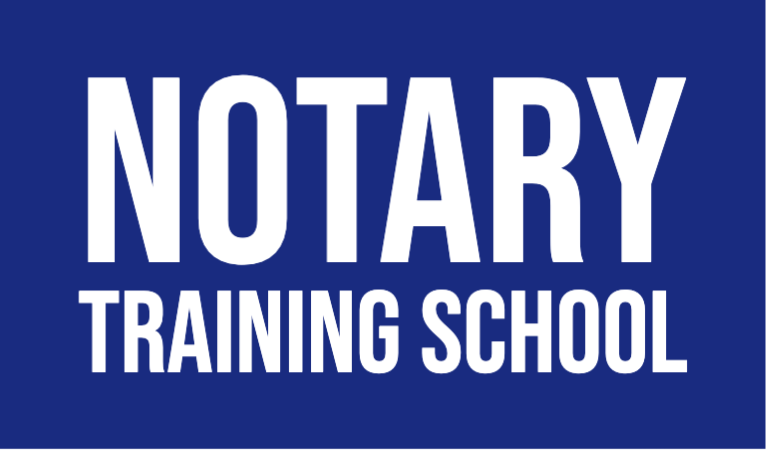Notary Signing Agent Michigan: A Guide for Michigan Notaries

As a Michigan Notary, you must stay informed on your industry’s latest information and updates.
Knowing how to become and operate as a notary signing agent can benefit you and your customers.
Whether you want to expand upon existing knowledge or are just starting as a notary signing agent, this guide provides valuable insights into notarizing documents in Michigan.
Read on to learn about licensing requirements, procedures, common mistakes to avoid, and more when acting as a Notary Signing Agent in Michigan.
Who can become a Michigan notary public?

Michigan requires that all notaries meet the following requirements.
- Be at least 18 years of age.
- Be a resident of Michigan or maintain a place of business in Michigan.
- Be a citizen of the United States or possess proof of legal presence.
- Be a county resident or maintain a principal place of business where you request a notary appointment.
- Be able to read and write the English language.
Who can’t receive a Michigan notary commission?
You can’t become a Michigan notary if you:
- Have any felony convictions within the past ten years.
- Have been found guilty of two misdemeanors in the Michigan Notary Public Act within 12 months or three misdemeanors within five years, regardless of whether you’re a commissioned notary.
How do I become a notary in Michigan?
To apply to become a Michigan notary public, you will need to:
- Complete the online or printed Michigan Notary Application
- Obtain a $10,000 surety bond
- Bring your application and surety bond to your county clerk, pay the county filing fee, and take the oath administered by the county clerk’s office.
- Upload or mail your final application and pay the $10 nonrefundable filing fee.
- Read the Michigan Notary Public Act
What education do you need to become a Michigan notary public?
In Michigan, no formal education or training course is required to become a notary public.
However, you must read the Michigan Notary Public Act
Is there a exam to become a notary in Michigan?
No, there is no exam to become a notary in Michigan.
However, you are encouraged to familiarize yourself with basic notarial procedures and laws before performing a notarization or loan signings.
Do I need a surety bond to become a notary public in Michigan?
Yes, you must obtain a $10,000 surety bond to become a notary in Michigan.
A surety bond is an agreement between three parties: the notary public (principal), the customer (obligee), and the surety company that pays out any claims if the principal fails to fulfill their duties as a notary.
The bond does not protect the notary public, but rather it protects the customer.
Do I need any additional Notary errors and omission insurance?
No, Michigan does not require notaries to carry additional errors and omissions insurance.
However, additional coverage may provide peace of mind if you are found liable for a claim related to your duties as a notary.
Is a notary stamp required for Michigan notaries?
No, notary stamps are not legally required in Michigan.
However, a stamp-type seal can provide additional security and make it easier to properly identify documents you have notarized.
Does Michigan require a notary journal?
No, Michigan does not require the use of a notary journal.
However, it is recommended that all notaries keep a record of all documents they have notarized in order to provide an audit trail.
How much does it cost to become a notary in Michigan?
To submit your completed Notary application, a non-refundable processing fee of $10 must be included.
Additionally, you will need to pay an additional $10 for filing the surety bond, but this amount may vary depending on where in the state you live.
As a Michigan Notary Public, you may wish to purchase some supplies.
The prices of these materials will differ depending on which brands and items are purchased; however, the cost for your rubber notary seal should be approximately $15-$25 while a recommended notarial journal can range from ten to fifty dollars.
Don’t forget about pens, sticky notes and replacement ink when budgeting!
How long does it take to become a notary in Michigan?
After you have purchased your bond and submitted the necessary paperwork, the processing time may take from four to six weeks.
Is electronic notarization allowed in Michigan?
In Michigan, becoming an electronic notary (e-Notary) is just as easy as it gets.
To start with, obtain your active notary public commission certificate either before or at the same time you apply for a standard Notary Public license – this will qualify you for electronic notarizations.
These are in-person notarial acts involving digital documents and electronic signatures that can help streamline your workflow significantly!
Subsequently, select an electronic notarization platform from the state’s authorized vendors list.
For existing Notaries, complete the Request for Duplicate/Notice of Change form; and if you are a new or renewing applicant, fill out the Notary Application and Instructions form with all essential information about your chosen vendor.
The moment that your details have been registered in the Department of State database you can start performing eNotarizations.
Does Michigan allow remote online notarizations via online webcam?
Michigan notaries with an active commission can register to perform remote online notarizations.
How much can I charge as a notary in Michigan?
The Michigan Department of State has granted Notaries the authority to bill up to $10 for each notarized document. A fee may also be charged for travel expenses, but this must be agreed upon between the signer and Notary beforehand.
Can I become a loan signing agent in Michigan?
Yes, Michigan notaries may become loan signing agents (also called notary signing agents).
A loan signing agent is a mobile notary that provides services to completing loan documents related to home loans, refinancing, and other real estate closing paperwork. They provide their notary services to financial institutions, lenders, law offices, or a title company.
To be successful as a loan signing agent, additional specialized training and knowledge is necessary. The best way to start a loan signing career and make more money than a traditional notary by completing loan closings is by taking a signing agent training program.
It’s also important to understand each lender’s specific requirements and stay current on the latest regulations for notarizing documents. Additionally, most loan signing agents need to purchase a background check to be eligible for certain loans. With the right skills and knowledge, becoming a loan signing agent in Michigan may be a great way to increase your income as a notary.
Is there a demand for loan signing agents in Michigan?
Yes, there is a strong demand for loan signing agents in Michigan. With the housing market booming and homebuyers refinancing their mortgages, many lenders are looking to hire experienced loan signing agents to help close loans quickly and efficiently.
Becoming a loan signing agent in Michigan can also be a great way to supplement your income as an existing notary or as a part-time job for retirees and stay-at-home parents. With the right training and resources, loan signing agents can make high incomes and have flexible hours that fit their schedules.





